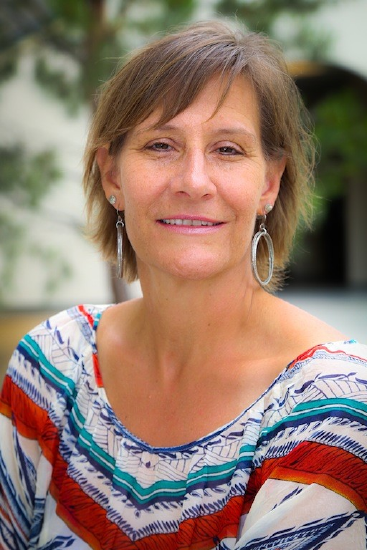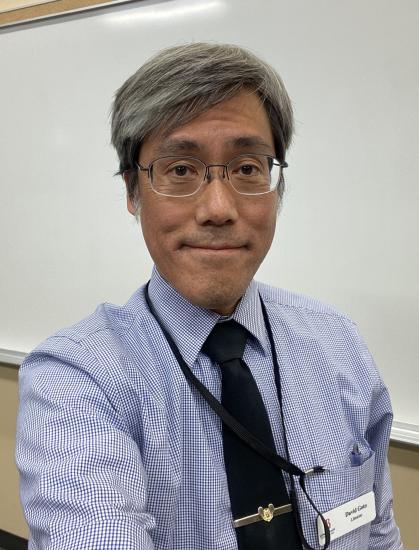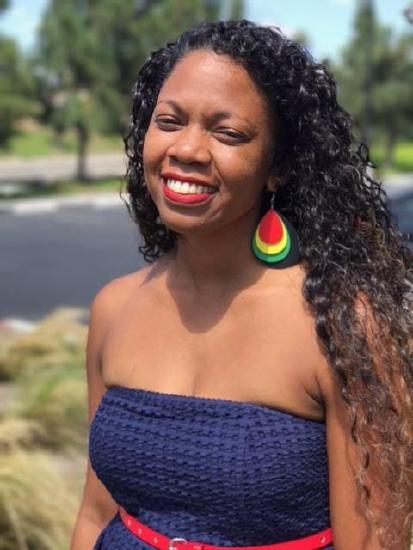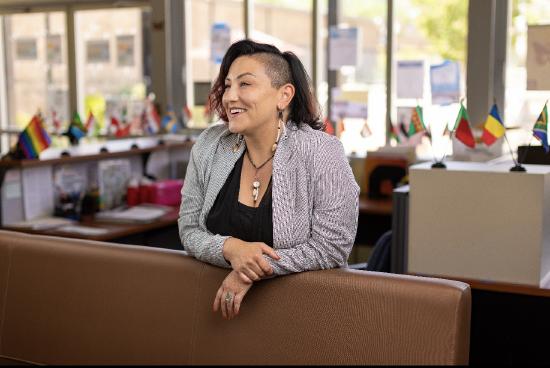About the Book and the Authors/Contributors
- Page ID
- 196187
\( \newcommand{\vecs}[1]{\overset { \scriptstyle \rightharpoonup} {\mathbf{#1}} } \)
\( \newcommand{\vecd}[1]{\overset{-\!-\!\rightharpoonup}{\vphantom{a}\smash {#1}}} \)
\( \newcommand{\id}{\mathrm{id}}\) \( \newcommand{\Span}{\mathrm{span}}\)
( \newcommand{\kernel}{\mathrm{null}\,}\) \( \newcommand{\range}{\mathrm{range}\,}\)
\( \newcommand{\RealPart}{\mathrm{Re}}\) \( \newcommand{\ImaginaryPart}{\mathrm{Im}}\)
\( \newcommand{\Argument}{\mathrm{Arg}}\) \( \newcommand{\norm}[1]{\| #1 \|}\)
\( \newcommand{\inner}[2]{\langle #1, #2 \rangle}\)
\( \newcommand{\Span}{\mathrm{span}}\)
\( \newcommand{\id}{\mathrm{id}}\)
\( \newcommand{\Span}{\mathrm{span}}\)
\( \newcommand{\kernel}{\mathrm{null}\,}\)
\( \newcommand{\range}{\mathrm{range}\,}\)
\( \newcommand{\RealPart}{\mathrm{Re}}\)
\( \newcommand{\ImaginaryPart}{\mathrm{Im}}\)
\( \newcommand{\Argument}{\mathrm{Arg}}\)
\( \newcommand{\norm}[1]{\| #1 \|}\)
\( \newcommand{\inner}[2]{\langle #1, #2 \rangle}\)
\( \newcommand{\Span}{\mathrm{span}}\) \( \newcommand{\AA}{\unicode[.8,0]{x212B}}\)
\( \newcommand{\vectorA}[1]{\vec{#1}} % arrow\)
\( \newcommand{\vectorAt}[1]{\vec{\text{#1}}} % arrow\)
\( \newcommand{\vectorB}[1]{\overset { \scriptstyle \rightharpoonup} {\mathbf{#1}} } \)
\( \newcommand{\vectorC}[1]{\textbf{#1}} \)
\( \newcommand{\vectorD}[1]{\overrightarrow{#1}} \)
\( \newcommand{\vectorDt}[1]{\overrightarrow{\text{#1}}} \)
\( \newcommand{\vectE}[1]{\overset{-\!-\!\rightharpoonup}{\vphantom{a}\smash{\mathbf {#1}}}} \)
\( \newcommand{\vecs}[1]{\overset { \scriptstyle \rightharpoonup} {\mathbf{#1}} } \)
\( \newcommand{\vecd}[1]{\overset{-\!-\!\rightharpoonup}{\vphantom{a}\smash {#1}}} \)
\(\newcommand{\avec}{\mathbf a}\) \(\newcommand{\bvec}{\mathbf b}\) \(\newcommand{\cvec}{\mathbf c}\) \(\newcommand{\dvec}{\mathbf d}\) \(\newcommand{\dtil}{\widetilde{\mathbf d}}\) \(\newcommand{\evec}{\mathbf e}\) \(\newcommand{\fvec}{\mathbf f}\) \(\newcommand{\nvec}{\mathbf n}\) \(\newcommand{\pvec}{\mathbf p}\) \(\newcommand{\qvec}{\mathbf q}\) \(\newcommand{\svec}{\mathbf s}\) \(\newcommand{\tvec}{\mathbf t}\) \(\newcommand{\uvec}{\mathbf u}\) \(\newcommand{\vvec}{\mathbf v}\) \(\newcommand{\wvec}{\mathbf w}\) \(\newcommand{\xvec}{\mathbf x}\) \(\newcommand{\yvec}{\mathbf y}\) \(\newcommand{\zvec}{\mathbf z}\) \(\newcommand{\rvec}{\mathbf r}\) \(\newcommand{\mvec}{\mathbf m}\) \(\newcommand{\zerovec}{\mathbf 0}\) \(\newcommand{\onevec}{\mathbf 1}\) \(\newcommand{\real}{\mathbb R}\) \(\newcommand{\twovec}[2]{\left[\begin{array}{r}#1 \\ #2 \end{array}\right]}\) \(\newcommand{\ctwovec}[2]{\left[\begin{array}{c}#1 \\ #2 \end{array}\right]}\) \(\newcommand{\threevec}[3]{\left[\begin{array}{r}#1 \\ #2 \\ #3 \end{array}\right]}\) \(\newcommand{\cthreevec}[3]{\left[\begin{array}{c}#1 \\ #2 \\ #3 \end{array}\right]}\) \(\newcommand{\fourvec}[4]{\left[\begin{array}{r}#1 \\ #2 \\ #3 \\ #4 \end{array}\right]}\) \(\newcommand{\cfourvec}[4]{\left[\begin{array}{c}#1 \\ #2 \\ #3 \\ #4 \end{array}\right]}\) \(\newcommand{\fivevec}[5]{\left[\begin{array}{r}#1 \\ #2 \\ #3 \\ #4 \\ #5 \\ \end{array}\right]}\) \(\newcommand{\cfivevec}[5]{\left[\begin{array}{c}#1 \\ #2 \\ #3 \\ #4 \\ #5 \\ \end{array}\right]}\) \(\newcommand{\mattwo}[4]{\left[\begin{array}{rr}#1 \amp #2 \\ #3 \amp #4 \\ \end{array}\right]}\) \(\newcommand{\laspan}[1]{\text{Span}\{#1\}}\) \(\newcommand{\bcal}{\cal B}\) \(\newcommand{\ccal}{\cal C}\) \(\newcommand{\scal}{\cal S}\) \(\newcommand{\wcal}{\cal W}\) \(\newcommand{\ecal}{\cal E}\) \(\newcommand{\coords}[2]{\left\{#1\right\}_{#2}}\) \(\newcommand{\gray}[1]{\color{gray}{#1}}\) \(\newcommand{\lgray}[1]{\color{lightgray}{#1}}\) \(\newcommand{\rank}{\operatorname{rank}}\) \(\newcommand{\row}{\text{Row}}\) \(\newcommand{\col}{\text{Col}}\) \(\renewcommand{\row}{\text{Row}}\) \(\newcommand{\nul}{\text{Nul}}\) \(\newcommand{\var}{\text{Var}}\) \(\newcommand{\corr}{\text{corr}}\) \(\newcommand{\len}[1]{\left|#1\right|}\) \(\newcommand{\bbar}{\overline{\bvec}}\) \(\newcommand{\bhat}{\widehat{\bvec}}\) \(\newcommand{\bperp}{\bvec^\perp}\) \(\newcommand{\xhat}{\widehat{\xvec}}\) \(\newcommand{\vhat}{\widehat{\vvec}}\) \(\newcommand{\uhat}{\widehat{\uvec}}\) \(\newcommand{\what}{\widehat{\wvec}}\) \(\newcommand{\Sighat}{\widehat{\Sigma}}\) \(\newcommand{\lt}{<}\) \(\newcommand{\gt}{>}\) \(\newcommand{\amp}{&}\) \(\definecolor{fillinmathshade}{gray}{0.9}\)About this book: Sociology of Race and Ethnicity
This textbook is so perfectly called a remix. It is a combination of the work of many different authors who have all contributed to the growing body of Open Educational Resources (OER). I have selected pages and chapters from Anthropology, Sociology, Social Justice Studies, Ethnic Studies, Social Work, and Psychology since a multidisciplinary approach allows us to learn from the best work in many fields but most of the content comes from two other OER textbooks: Race and Ethnic Relations in the U.S.: An Intersectional Approach and Introduction to Ethnic Studies. You can learn about each of these texts below.
According to Ambroise-Thomas (2023) The idea of a remix originates in the 1960s and 1970s when Jamaican reggae and dub artists began experimenting with reworking and manipulating existing recordings. Over time, the remix has also emerged as a distinct art form, with many artists and producers choosing to focus primarily on creating remixes. This shift in focus has given rise to a new wave of creative expression, as remixers reinterpret and re-imagine existing tracks to create entirely new musical experiences. Remix culture has had an impact on many forms of media, from music to film and television and now, in Open Educational Resources.
Jennifer Ounjian, Creator/Remixer/Contributor

Jennifer is a tenured professor at Contra Costa College and department chair for the Psychology Department. She also teaches at Madera Community College in Ethnic Studies and Psychology. Jennifer earned her BA in African American Studies with a minor in Armenian Studies at CSU Fresno, MA in Afro-American Studies (Sociology concentration) at UCLA, and MA and EdD (ABD) in Counseling Psychology at Argosy University. She has worked in higher education for over 20 years in a variety of positions starting with TRiO programs in East Los Angeles and Pasadena, a decade in academic management, and now 12 years in the faculty ranks. Jennifer has foundhas a cherished creative and intellectual outlet in OER and ancillary development in addition to online course instructional design and curriculum development. You will find several contributions from her to this book listed as "Our Local Stories" documenting the history of minoritized populations in the Central Valley of California.
About the Book: Race and Ethnic Relations in the U.S.: An Intersectional Approach
About the Authors/Contributors
Erika Gutierrez, Author/Contributor
Dr. Janét Hund, Author/Contributor
Shaheen Johnson, Author/Contributor
Carlos Ramos, Author/Contributor
Lisette Rodriguez, Author/Contributor
Joy Tsuhako, Author/Contributor
David Goto, Contributor
About the book: Introduction to Ethnic Studies
This Open Educational Resource (OER) is written by six Ethnic Studies faculty across six California Community College districts. It is organized around key learning objectives that help introduce learners to the disciplines of Ethnic Studies. This includes chapters highlighting key theories and concepts from the four core disciplines of Ethnic Studies: Africana/African American/Black Studies; American Indian/Native American Studies; Asian American and Pacific Islander Studies; and Chicanx and Latinx Studies. In addition, several chapters review fundamental frameworks and topics in Ethnic Studies including: how Ethnic Studies came to be; white supremacy and racisms; intersectionality; the racial wealth gap; mass incarceration and policing; and resistance and solidarity movements. Since its inception in 1968, students have demanded relevant curriculum that centers on their experiences and struggles as racialized communities of color. This OER textbook will focus on examples of self-determination, liberation struggles, decolonialism, sovereignty, dismantling oppressive power structures, and anti-racism in a collective effort toward building a just and equitable society.
Authors by Chapter
- Chapter 1: Introduction - By Kay Fischer
- Chapter 2: The Ongoing Struggle for Ethnic Studies - By Dr. Mario Alberto Viveros Espinoza-Kulick
- Chapter 3: Africana/African American/Black Studies - By Dr. Mario Alberto Viveros Espinoza-Kulick and Dr. Teresa Hodges
- Chapter 4: American Indian/Native American Studies - By Dr. Melissa Leal and Dr. Tamara Cheshire
- Chapter 5: Asian American and Pacific Islander Studies - By Kay Fischer and Dr. Teresa Hodges
- Chapter 6: Chicanx and Latinx Studies - By Dr. Mario Alberto Viveros Espinoza-Kulick and Ulysses Acevedo
- Chapter 7: White Supremacy, Racisms, and Racial Formation - By Dr. Teresa Hodges
- Chapter 8: Intersectionality: Centering Women of Color - By Kay Fischer
- Chapter 9: The Racial Wealth Gap - By Ulysses Acevedo
- Chapter 10: The State of Human Caging: Incarceration, Policing and State-sanctioned Violence - By Ulysses Acevedo and Kay Fischer
- Chapter 11: Social Movements: Resistance and Solidarity - By Dr. Mario Alberto Viveros Espinoza-Kulick and Kay Fischer
Kay Fischer, M.A. (she/her/hers)
Kay Fischer is an instructor of Ethnic Studies at Chabot College in Hayward, CA, where 100% of Ethnic Studies courses are proudly zero or low textbook cost. She is also an advisor to the Stay Woke Collective club and part of Chabot’s Movement learning community, focused on Asian American and Pacific Islander culture and experiences. As a former community college student, Kay transferred from De Anza College to UC Berkeley and majored in Ethnic Studies, where she found her voice and roots in student organizing. She has an MA in Teaching from USF and an MA in Asian American Studies from SF State. Besides teaching, Kay organizes around issues of decolonization, peace and reunification in the Korean peninsula, and justice for so-called “Comfort Women.”
Mario Alberto Viveros Espinoza-Kulick, M.A., Ph.D. (he/él)
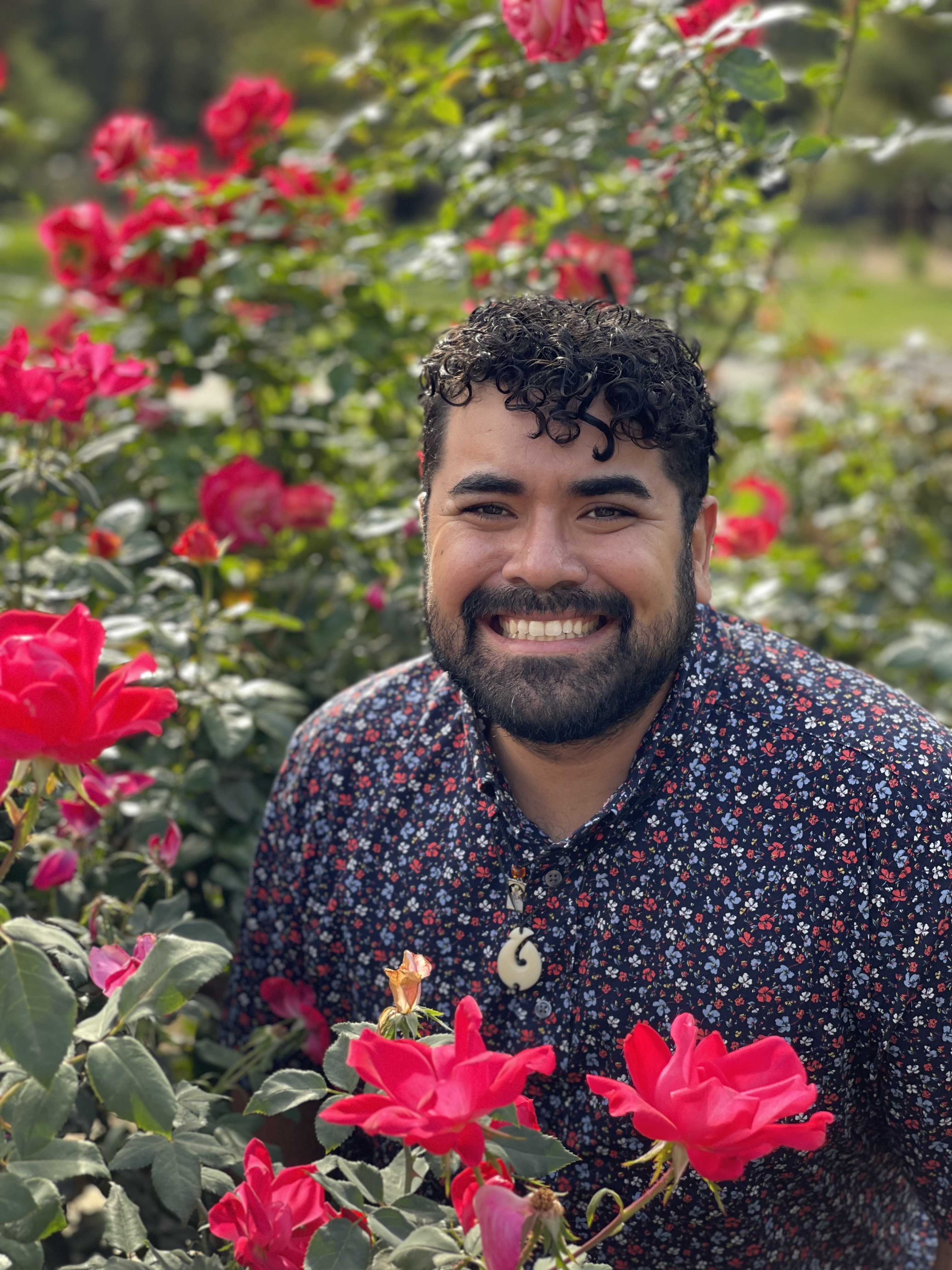
Dr. Mario Alberto Viveros Espinoza-Kulick is an Instructor of Ethnic Studies at Cuesta College, Mellon/American Council of Learned Societies Community College Faculty Fellow, poet, scholar, and author. He earned a BA in Ethnic Studies with a minor in Indigenous Studies in Natural Resources and the Environment from California Polytechnic State University, San Luis Obispo. His MA and PhD in Sociology were achieved at the University of California, Santa Barbara, as a Health Policy Research Scholar funded by the Robert Wood Johnson Foundation. His work with and for Chicanx and Latinx communities is rooted in a commitment to family and community on California's Central Coast and in Michoacán, Mexico (Purépecha). Dr. Espinoza-Kulick shares stories about culture, health equity, and community leadership as a host of Central Coast Voices on the National Public Radio (NPR) station KCBX. His work has been published in Oxford University Press, the International Journal of Environmental Research and Public Health, Health Promotion Practice, and regional news outlets like El Latino, Santa Maria Times, and the Santa Barbara Independent.
Ulysses Acevedo, M.A. (he/him)
Ulysses Acevedo is an instructor of Ethnic Studies at Foothill College in Los Altos Hills, CA. After transferring from community college, Ulysses attended San Francisco State University, earning a B.A. in Latina/o Studies and an M.A. in Ethnic Studies. Informed by his own experience as the first person in his family to attend college, the focus of his research has been the role of identity-based student group participation on retention and completion rates for Chicano men at community colleges. In the past he has taught courses have included traditional face-to-face on-campus classes; both asynchronous and synchronous online classes; and dual-enrollment community college classes taught off-campus, including at middle, high, adult and continuation schools.
Teresa Hodges, Ph.D. (she/her/hers/siya)
Teresa Hodges is an instructor of Ethnic Studies at Cuyamaca College in El Cajon, CA. She was a California State University Chancellor’s Doctoral Incentive Program Scholar (2018-2019). She has her Ph.D. in Education from the University of Hawaiʻi at Mānoa, an M.A. in Asian American Studies from San Francisco State University, and a B.A. in Ethnic Studies from UC San Diego. Her work centers Critical Mixed Race Studies, Asian American Studies, Black Studies, Feminist Studies, and Comparative Ethnic Studies. She aims to cultivate transformative educational experiences that help others to heighten their consciousness, develop deeper connections to community, and inspire action that promotes change in the world around them.
Melissa Leal, Ph.D. (she/her/hers)
Dr. Melissa Leal is an enrolled member of the Ohlone/Costanoan Esselen Nation. She earned her Ph.D. In Native American Studies from the University of California, Davis and currently teaches and serves as the Ethnic Studies Department Chair and Tribal Liaison at Sierra College. Her research focuses on contemporary film, music, dance and other performance arts in indigenous communities. She has worked with tribes and tribal youth for more than 20 years focusing on education, language revitalization, and California Indian Studies.
Tamara Cheshire, Ed.D. (she/her/they/them)
Pictured left to right Dr. Tamara Cheshire and Jordan Burkart
Dr. Tamara Cheshire (Lakota) is a Native American Scholar and the Chair of the Ethnic Studies Department at Folsom Lake College. She is the Co-Chair of the Los Rios District Ethnic Studies Faculty Council, a member of the California Community College Ethnic Studies Faculty Council and is serving on the California Community College Chancellor’s Office/ASCCC Ethnic Studies Taskforce. She has her doctorate in Educational Leadership from Sacramento State, her MA in Interdisciplinary Studies and BS degree in American Studies with Ethnic Studies emphasis and discipline focus in Native American Studies from Oregon State. She has published several articles, chapters, and a book about the barriers faced by and the resiliency of Native American students in higher education.
Jordan Burkart is a Native American student at Sacramento State majoring in Photography.


